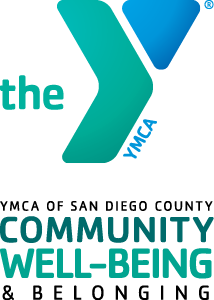By: Kristina Halmai-Gillan, LMFT
There are many thoughts and emotions whizzing around as families and children prepare to go “back to school.” What does that even mean while living in the COVID-19 pandemic? What will school look like? How can I prepare and how can I prepare my kids? How will we balance it all?
We know this school year will differ from last spring when we all found ourselves tossed into a public-health crisis and physically distant from our social circles. Students were sent home and separated from their peers and campuses. Adults were forced to work from kitchen tables, couches, even laundry rooms. Some deemed as essential workers were celebrated as they braved the outside world to provide their communities with food, shelter, deliveries, medical care and other essentials. All of us, in fear and anxious, trying to understand a virus that we knew almost nothing about. It was like a public-health quick fire challenge! And for some, a collective trauma.
So here we are, this weird summer winding down as we begin to pivot towards the new school year and another insecure semester. I’ve personally been envisioning multiple scenarios as my brain wrestles with the unknown, will my children return full-time, will it be a hybrid, what happens if someone on campus contracts the virus…how likely is a full year of virtual learning? I have no more answers now than I did six months ago. What is different however, is my perspective.
Rather than holding on to what it WON’T be, we can re-frame this experience as getting ready to “learn in a pandemic.” This re-frame certainly doesn’t give any comfort or answer any questions but it can give us permission to take a step back for a wide angle view of this collective experience.
As the parents of an 8th and 4th grader, and as a mental health professional, I’m sharing my intentions in hopes that it might settle any worries that fellow parents are also experiencing and also help keep us grounded as we navigate remote learning with our children (who are always watching us for cues about how to handle uncertainty).
1) It will not be school as we’ve known it. It will be a learning opportunity for students and caregivers alike.
2) We can be curious about what this experience will be like, instead of automatically falling into a fight, flight or freeze reaction.
3) We do not have to expect perfection from our children. And I will not expect perfection from myself or my partner. Compassion will take us farther. If one kids wants to work upside down on the couch, it’s ok.
4) We can take a growth mindset. Our children will learn more than academics. They will learn adaptability and flexibility and build resilience, all of which are valuable life skills.
5) We can prepare modest learning spaces with supplies and try to minimize distractions, staying open to make changes and adjustments that will inevitably come.
6) We can communicate with our children’s teachers openly and honestly so that we can engage in a reasonable learning plan that works with the unique circumstances that every family has. We are our own advocates.
7) We will pay attention to the “efforting” that our children will continue to do. The effort that they put into learning and continuing to adapt to public health needs. Recognizing their effort will support strong connections and family bonds.
8) We can schedule “family-huddles” to collaborate with our children so they can tell us what is working and what is not working. We need to listen and observe compassionately so we can troubleshoot and problem solve.
9) We’ve got to commit time to self-care. Even if it’s just a 15min drive alone with our favorite song.
10) We will take a step back in order to keep focus on the big picture and not get caught on the small details…and will step back over and over again when we need to re-set ourselves.
The relationships with our children are far more important than anything else. Our children watch us and learn from our attitudes and actions. As parents, we need to do our best to model strength and grace in times of uncertainty and do our best to facilitate their healthy development. I firmly believe that all of the students getting ready to get back to learning will try their best to manage the expectations of their teachers and schools. For some remote learning will be a big challenge. For others, it will be better than on-campus learning. It will be a messy academic year and I certainly expect to be stretched to my limits. If you find your family needing more support, reach out to your support network or to a professional. We are all in this together and we can compassionately support our children.
 Kristina Halmai-Gillan, LMFT serves as the Clinical Innovation Consultant for YMCA Youth & Family Services in San Diego. Kristina is particularly passionate about giving under-resourced youth the opportunities they deserve so that they can identify their interests, unlock their potential, and ultimately contribute to the greater good. She also supports staff development and believes in a relationally based workplace culture. Kristina has worked as a clinician for over 15 years in a variety of settings including residential and substance use treatment.
Kristina Halmai-Gillan, LMFT serves as the Clinical Innovation Consultant for YMCA Youth & Family Services in San Diego. Kristina is particularly passionate about giving under-resourced youth the opportunities they deserve so that they can identify their interests, unlock their potential, and ultimately contribute to the greater good. She also supports staff development and believes in a relationally based workplace culture. Kristina has worked as a clinician for over 15 years in a variety of settings including residential and substance use treatment.


